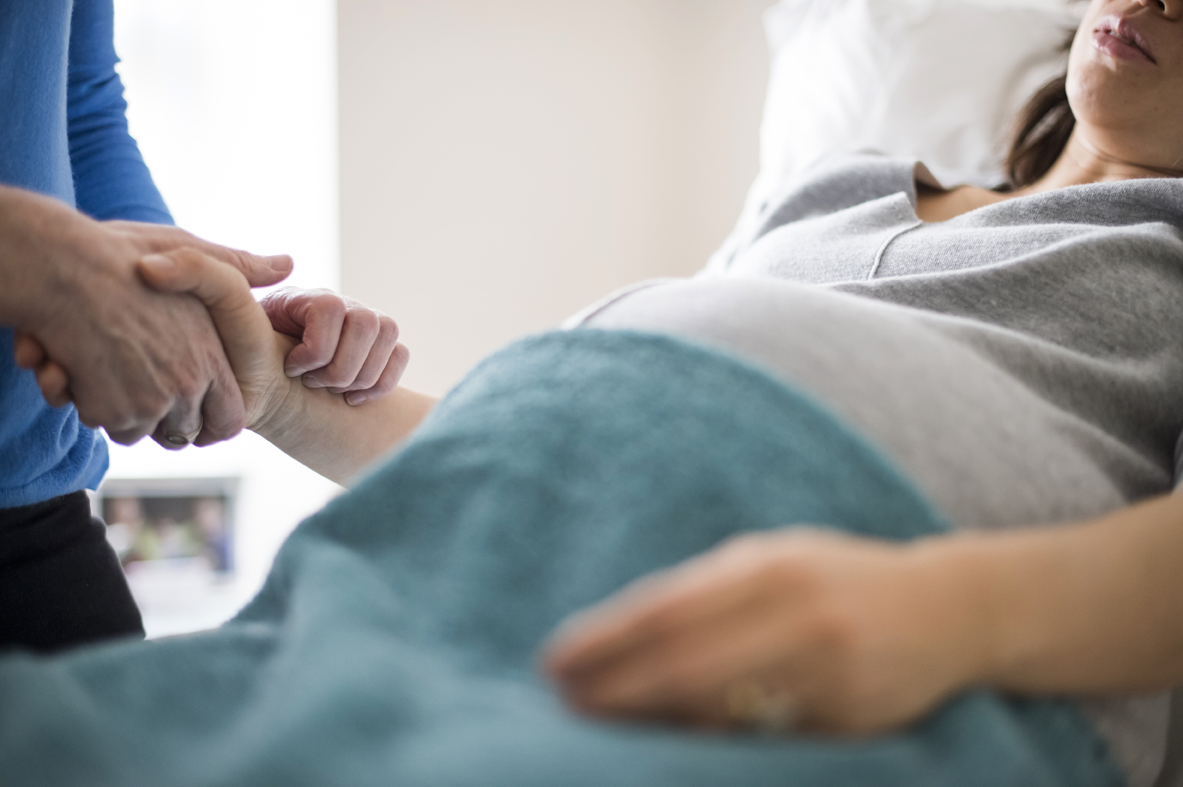Morning sickness, fatigue and nausea for most women starts like clockwork at about six and a half weeks into the first trimester and typically lasts until week 12-14.
I always warn my patients that symptoms are usually at their worst from 7 weeks to 10 weeks just so they can take each week at a time and know how long they have to cope with the debilitating nausea and fatigue.
I usually see my patients for 2 short half hour treatments a week to keep them ‘topped up’ and relieve nausea and vomiting for a few days at a time.
The best way to eat, to stave off nausea and to not get to the point where you are vomiting at all, or less frequently, is to eat little and often. No matter how ill you are feeling the important thing is to have a small amount of food every two to three hours. Snack on crackers, oat biscuits, rice cakes, almonds and brazil nuts, grapes, pears, yoghurt.
Very large meals, eating late and skipping meals will make most women feel worse. By maintaining a regular intake of energy your blood sugar levels will remain more stable and you will notice an improvement in your symptoms.
I advise women to have a small snack before bed and to make sure they have something before they get out of bed in the morning too. If you wake and feel hungry or nauseous during the night you may also need to top up and eat something then too. It is not that you will be eating less, or more, just more often.
Divide your meals up; take all morning to finish your breakfast even if it’s two mouthfuls at a time; dont give up just keep doing your best to eat as often as you can.
Sugar and chocolate should be avoided wherever possible as they will tend to make you worse. Bland food such as rice cakes, white bread, potatoes and other starchy food may often be better tolerated than healthier whole grain foods at this time. The most important thing is to keep up a regular intake of food.
It’s the same with fluids. Sip water continuously rather than get thirsty and drink a large glass or more too quickly. Fizzy water with lemon, ginger beer, boiled water with slices of ginger and watered down fruit juices, as well as broths, miso soup, potato soup, watery fruits such as melons are all useful ways to stay hydrated.
This is also a time to take sick leave, book off holiday time or call in extra childcare support wherever you can as rest and extra sleep and reduced stress will also improve how you feel.
By twelve to fourteen weeks the majority of women are eating normally again and their energy and appetite is back to normal.
If you are not able to retain any food or fluids and you notice and you are not passing urine frequently or it is very concentrated and dark then you may need to be re-hydrated in hospital so please seek appropriate medical attention.


Leave a Reply